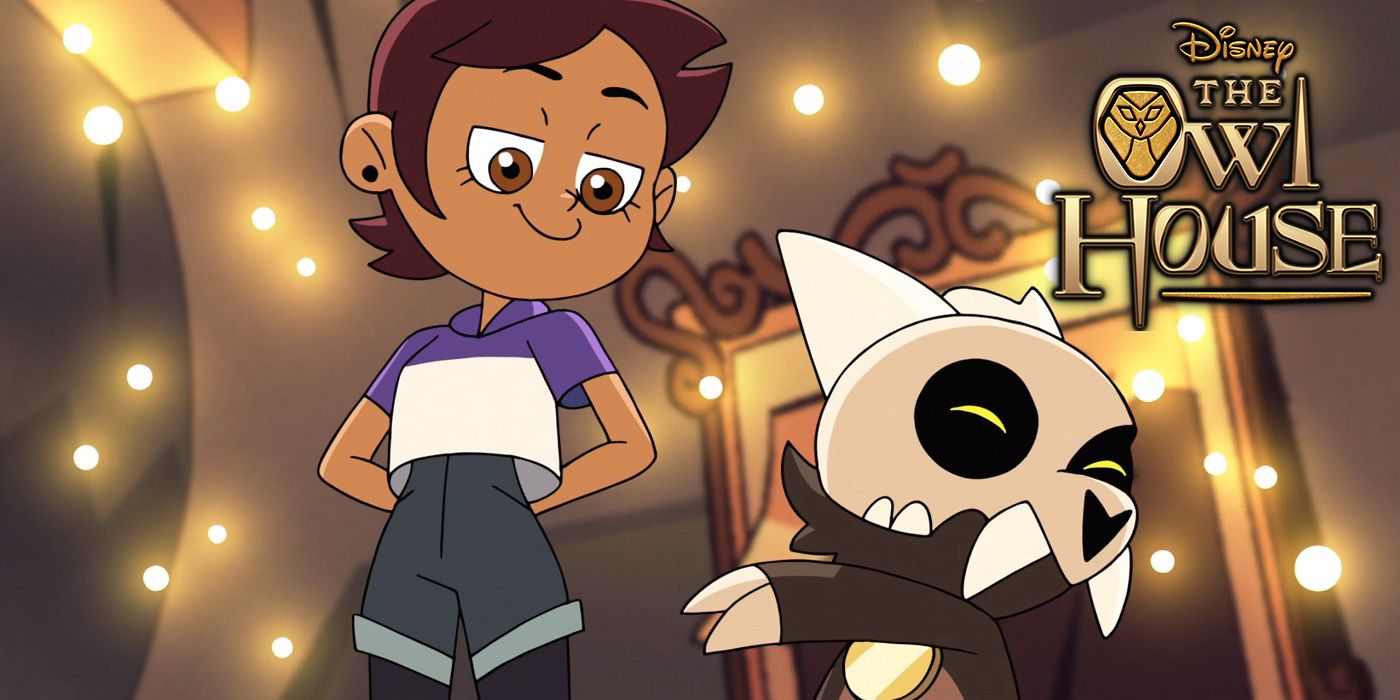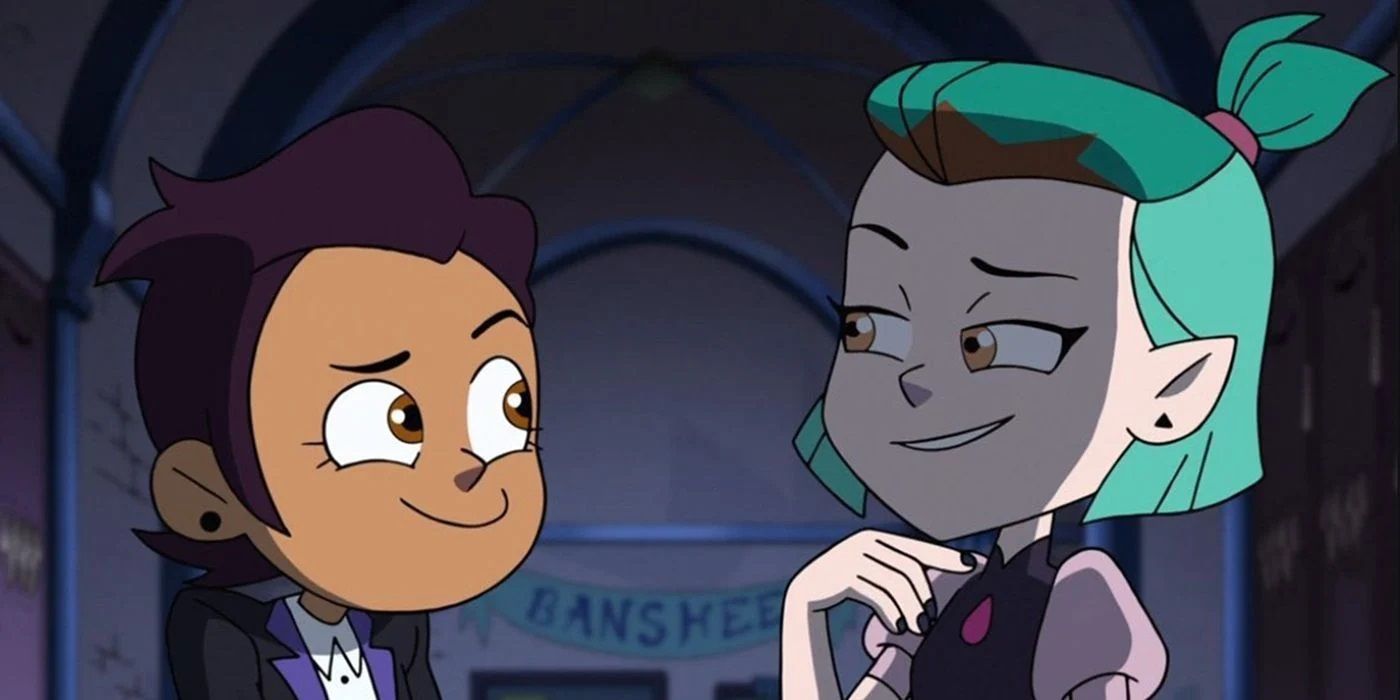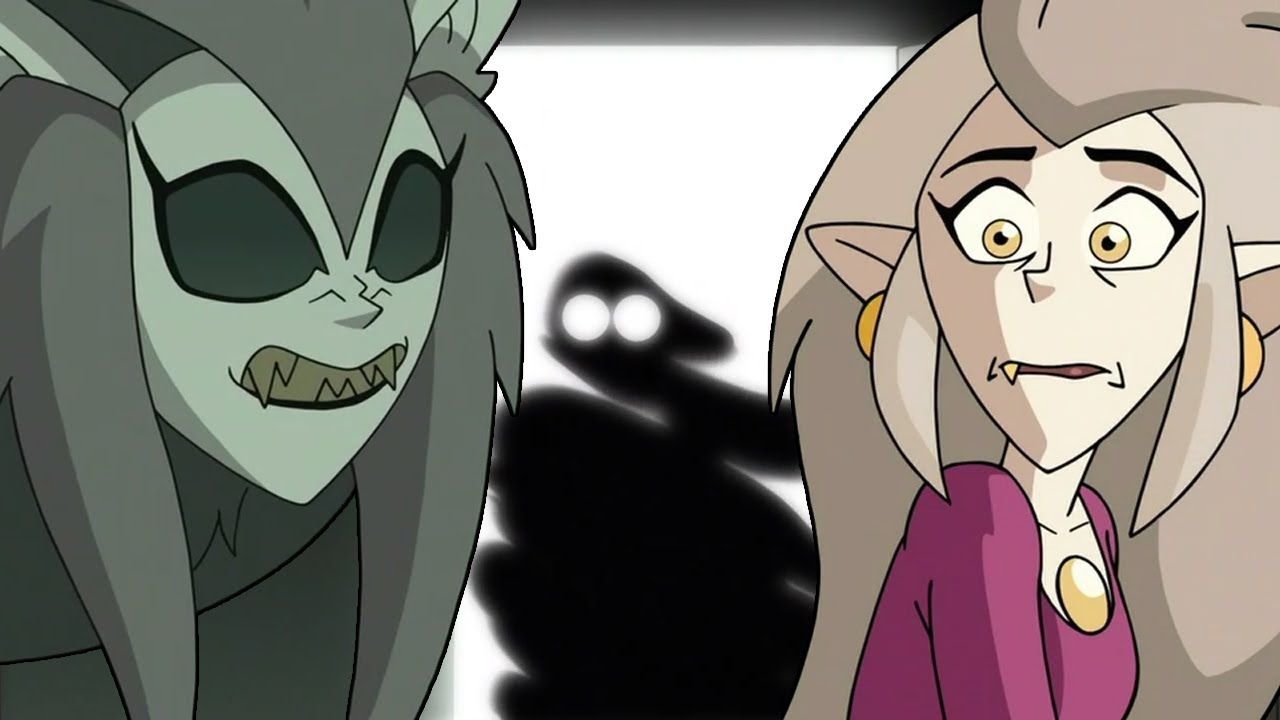Having arrived for Halloween on Disney+, The Owl House debuted its first season, and it's one of those animated shows that manages to appeal to a wide audience, not just kids. 2020 has been a demonic year, and this is a demonic show - but it's also one of the year's television highlights. Even if you haven't watched a Disney show in years (or even decades), The Owl House just might be the one to bewitch you into the House of Mouse.
Premiering in early 2020, the series was created by Dana Terrace, who storyboarded Gravity Falls and contributed to directing some episodes of the recent DuckTales reboot. The Owl House marks her first foray into showrunning, and the series has come out of the gate in its opening season with a lot of potential. In many ways, the show almost feels like a parody of Harry Potter- and it's as good a year as any to mock said series while in many ways addressing some of its flaws, which this show does. By focusing on a women-centered cast, parodying genre clichés, and working in more representation than Hogwarts ever did, The Owl House serves as a kind of post-modern take on the well-worn trope of 'Normal Kid Gets Lost in Magical Realm' while delivering genuinely likable character dynamics as the gravy to its light-hearted, demon-flavored mashed potatoes.
The Owl House centers its events in a dark fantasy land called The Boiling Isles, a twisted and surreal magical space full of witches, warlocks, curses, demons, and hellish horrors. Even the first episode contains some surprisingly harrowing imagery for a Disney cartoon, and the show has a morbid sense of humor mixed into its wide-eyed adolescent perspective. Despite early cues that it's riding off the broomsticks of other popular 'magical school' stories, The Owl House makes great strides in establishing its own identity, including an early episode specifically flipping the 'chosen one' motif on its head and setting up its protagonist to accept her role as just some stranger in a strange land who will make her own place in society rather than be slotted into a pre-established space. As the season goes on, it helps illustrate how letting new perspectives have voices in society can inherently lead to positive changes for everyone.
Protagonist Luz Noceda (played by Sarah-Nicole Robles), a Dominican-American, is a fourteen year-old who, of course, accidentally stumbles into this demonic realm instead of going to summer camp. She's a refreshing main character in a genre and medium that is often geared toward (usually white) boys, and she manages to feel much more rounded than the usual cartoon hero. She's not absolutely extreme in any singular way, other than perhaps a fiery desire to make friends. Luz is nerdy, yet seemingly athletic. She's soft-hearted but steel-edged when her friends or her feelings are hurt. She's stubborn in a lot of ways but open-minded to understanding others. She wants to do good but is also eager to cause mischief for fun. She geeks out, writes fanfiction, and indulges in her aesthetic without regret or shame.
While other cartoon protags are more one-note and predictable, Luz feels more like a real teenager figuring themselves out while simultaneously being incredibly self-confident in what she likes and dislikes (a lesson many adults could stand to learn). It's not as if she perfectly rises to every occasion, either. She makes mistakes, her inherent strengths come with weaknesses that she sometimes has to confront and accept, but all the while she reacts and responds in ways that lead to growth and make sense with her motivations, rather than just curling toward whatever gimmick or plot an episode's premise calls for.
It's telling that in a school that shoe-horns its students into a specific 'major' with a colored uniform to match their learning track, Luz defies this rigidity by multi-majoring and donning a rainbow-colored uniform. And that imagery has some more meaning, as well, given that Luz is canonically bisexual - and it's exceedingly rare, especially in animation, for bisexuals to feel represented, much less by a main character. Not to mention other characters in the world have queerness coded into their presentation (Willow's dads or Luz's foreshadowed love interest, Amity, who increasingly acts so blatantly bashfully gay for Luz one might die from second-hand embarrassment). Luz is at once likeable and charming in down-to-earth ways while also being a positive influence and representing lesser-seen identities. Luz Noceda feels like exactly the kind of main character we need more often in animation, and in many ways she herself is perhaps the main highlight of the show so far.
But any TV series can't live on the strength of just one character. The Owl House features an eclectic and endearing cast, most notably Luz's shady, hermit mentor Eda Clawthorne (Wendie Malick) and demon-creature pet/buddy King (Alex Hirsch). The trio form a vibrant surrogate family of sorts, and their differences allow for all sorts of dynamic chemistry and plotlines. Luz also makes some friends at Hexside School of Magic and Demonics, which increasingly becomes more relevant as Season 1 progresses. Of particular note is her rivals-to-friends-to-more arc with Amity, which sets itself to be a long process but ends up actually resolving itself pretty quickly, highlighting how people can overcomplicate their differences instead of just reaching an understanding.
It's still a bit early to say, but the show is balancing a delicate tightrope walk between episodic comedy threaded with lore, character arcs, and world-building in what has a lot of potential to grow over time. We've seen it with other cartoons in recent years like She-Ra, Steven Universe, and Kipo, and there's a strong scent of that desire to expand and deepen here, as well.
Those previously mentioned cartoons and others have been laying the groundwork for more diversity in the medium, and there's still a long ways to go, but The Owl House starts off with some effort, showcasing a passion and understanding about what is lacking in cartoons while simultaneously making sure it injects a lot of comedy and fun into its dark fantasy setting. There's not really a show like it on TV right now, and with such a strong opening season, there's a wealth of potential which could be explored. If recent shows like She-Ra and Kipo are any indication, this one is absolutely a series to keep an eye on.
The Owl House can be streamed on Disney+ or DisneyNow.




